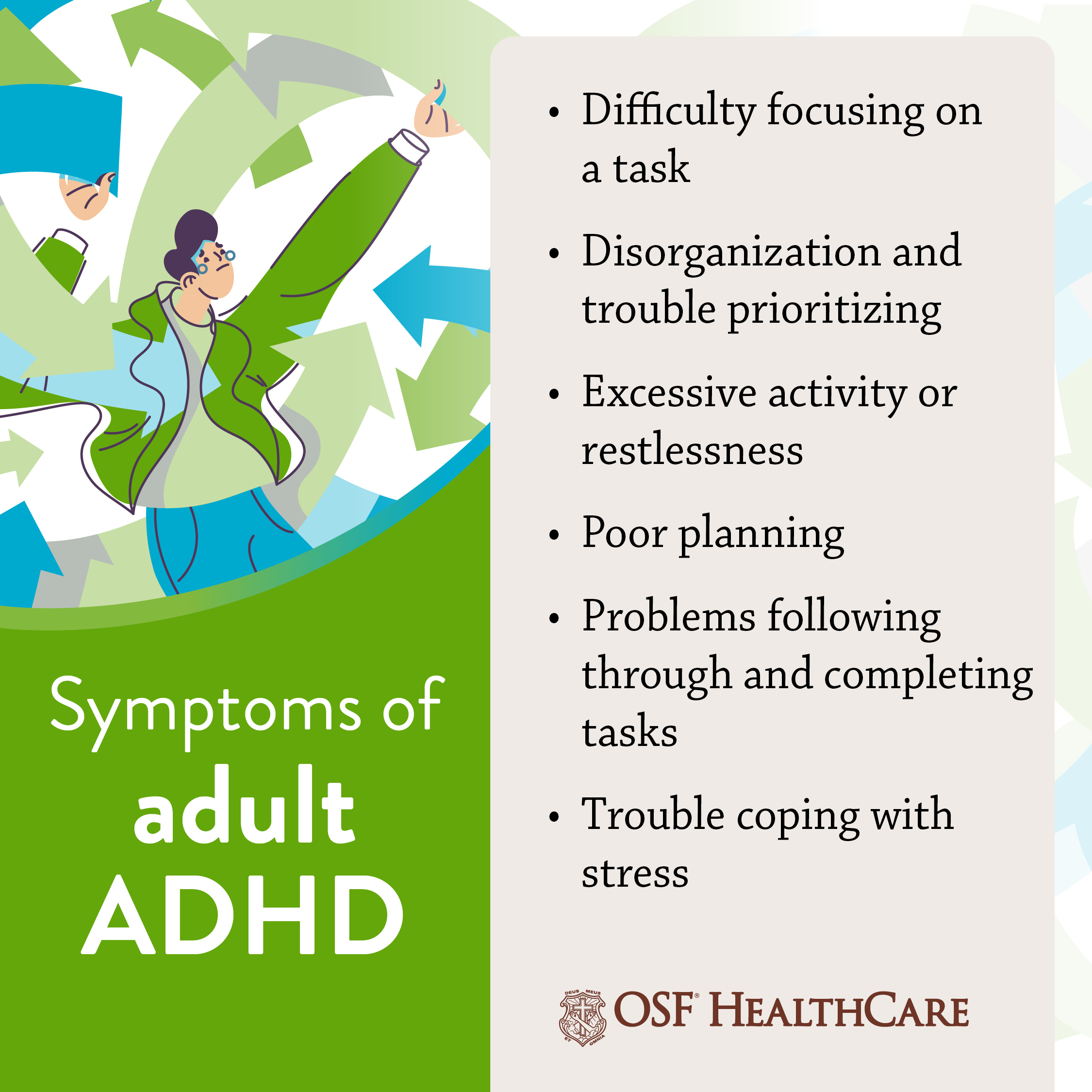
Quiz: Is it adult ADHD?
When you picture ADHD, what do you see? Is it an adult who is successful in their career? A parent raising a brood of kids?
ADHD looks different in adults than it does in children – the typical life stage you might associate with ADHD. Some adults never even know they have it. That’s largely because it’s a tricky one to diagnose.
“Similar symptoms can be exhibited in depression, anxiety, bipolar disorder, mood disorders, thyroid disorder and substance abuse,” said Andrew Wherley, MD, a primary care provider at OSF HealthCare.
ADHD symptoms in adults
About 3-4% of adults are diagnosed with ADHD. Living with ADHD as an adult can look different for different people. Here are some additional symptoms to look for if you think you may have ADHD.

Ready to find out if you might have ADHD?
Take the ADHD quiz
- Difficulty focusing on a task
- Disorganization and trouble prioritizing
- Excessive activity or restlessness
- Frequent mood swings
- Poor planning
- Problems following through and completing tasks
- Trouble coping with stress
Adults with ADHD can experience symptoms from mild to severe. Many of these adults will outgrow some of their symptoms as they age, but some may linger and interfere with daily functioning, making everyday tasks more challenging.
Many people experience ADHD-like symptoms at different points in their lives. If you had difficulty paying attention or struggled to get work done, it doesn’t necessarily mean that you had or have ADHD.
How is ADHD diagnosed?
ADHD is not a condition that you develop in adulthood. However, if you weren’t diagnosed with ADHD as a child, you can still be diagnosed as an adult. If you’re diagnosed with ADHD, that simply means you had it as a child, but it wasn’t caught.
If you think you may have ADHD after taking the quiz above, take your answers to your primary care provider and ask if it could be ADHD.
A diagnostic evaluation can be done by your health care provider. This would likely consist of questions about your life, work, family, behavior and childhood.
“The diagnosis requires symptoms to be present in childhood prior to the age of 12. It also means multiple symptoms for more than six months,” Dr. Wherley said.
Helpful tips for talking to your health care provider
If you think you may have ADHD and schedule an appointment to talk to a health care provider, here are some things to think about before your appointment:
- Make a list: Write real-life examples of how your symptoms interfere with your life. Be as descriptive and specific as possible.
- Ask parents: Talk to your parents and loved ones who knew you during your childhood. Ask for their help in identifying symptoms you may have exhibited while growing up.
- Look for patterns: Is there a certain time of day you struggle to concentrate most? Is it a certain kind of setting that makes you feel more hyperactive? Are there certain situations that you find yourself in when you act impulsively?
For an adult, five symptoms need to be present. So, if you answered yes to at least five of the quiz questions, talk to your health care provider to determine for sure.
Treating ADHD in adulthood
Getting a diagnosis can help you to better manage symptoms that can disrupt your life.
Because ADHD is a behavioral health condition, counseling or therapy is always the first step, according to Dr. Wherley. A behavioral health provider can help you learn techniques that will equip you to manage and gain control of your behavior. Some providers also may prescribe medication to help get symptoms under control.
No matter what, you can work with your health care provider to determine the most effective course of action for managing your symptoms.